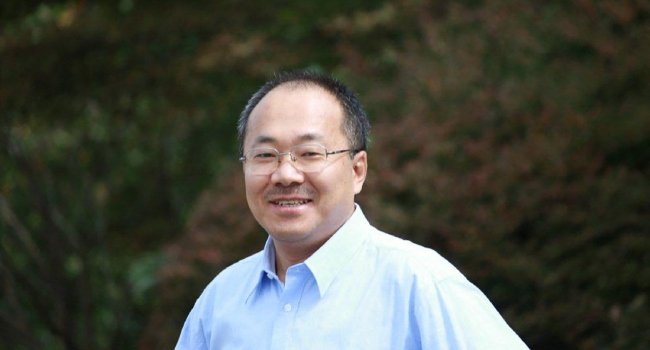A Beijing court on Friday sentenced veteran Chinese state media journalist Dong Yuyu to seven years in prison on espionage charges, his family said.
Dong Yuyu, a senior columnist at the Communist Party newspaper Guangming Daily, was detained in February 2022 along with a Japanese diplomat at a Beijing restaurant.
The diplomat was released after a few hours of questioning, but Dong, 62, has been in custody since and was charged with spying last year.
“The Beijing No. 2 Intermediate People’s Court convicted Yuyu of espionage, a crime that requires that the prosecution prove that the defendant knowingly acted on behalf of ‘espionage organisations’ and their agents,” a statement shared with AFP by his family said.
According to the judgement, the Japanese diplomats Dong met with, including then-ambassador Hideo Tarumi and current Shanghai-based chief diplomat Masaru Okada, were named as agents of an “espionage organisation”, the statement added.
“We are shocked that the Chinese authorities would blatantly deem a foreign embassy as an ‘espionage organisation’ and accuse the former Japanese ambassador and his fellow diplomats of being spies.”
On Friday, Beijing’s foreign ministry responded to Dong’s case by saying “China is a country ruled by law”.
“Chinese judicial authorities strictly handle cases in accordance with the law, and those who violate the law and commit crimes will be investigated according to the law,” spokeswoman Mao Ning said at a regular press conference.
The Japanese embassy told AFP that they would not comment on the case.
“In any case, the diplomatic activities of Japanese diplomatic missions abroad are carried out in a legitimate manner,” an embassy spokesperson told AFP in an email.
Under Chinese law, someone convicted of espionage can be jailed for three to 10 years for less severe cases or receive heavy punishment, including life imprisonment, for serious cases.

Dong’s work has been published in the Chinese editions of The New York Times and The Financial Times.
He won the prestigious Nieman Fellowship at Harvard University in 2006-2007.
He was also a visiting fellow at Keio University in Japan in 2010 and a visiting professor at Hokkaido University in 2014.
Civil liberties and freedom of expression have dramatically receded in China under President Xi Jinping’s decade-long tenure.
The Communist Party maintains tight restrictions on domestic media outlets, and Chinese nationals who work with foreign outlets are routinely harassed.
China is the worst country for jailing media workers with 44 journalists behind bars as of December last year, according to a Committee to Protect Journalists ranking.
In February, a Beijing court handed a suspended death sentence to jailed dissident writer Yang Hengjun after finding the dual Chinese-Australian citizen guilty on espionage charges.


